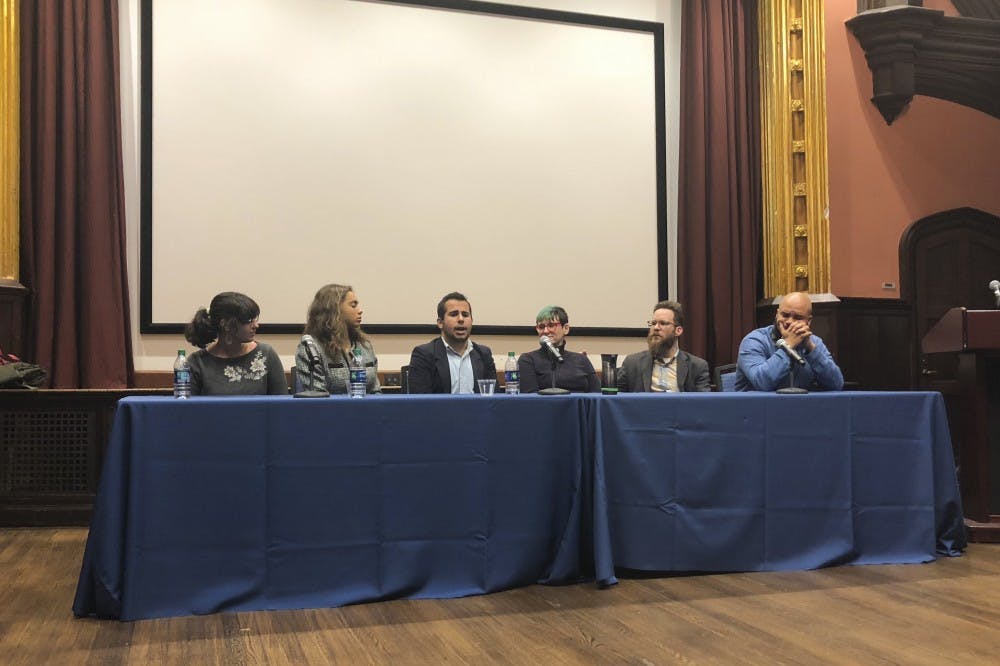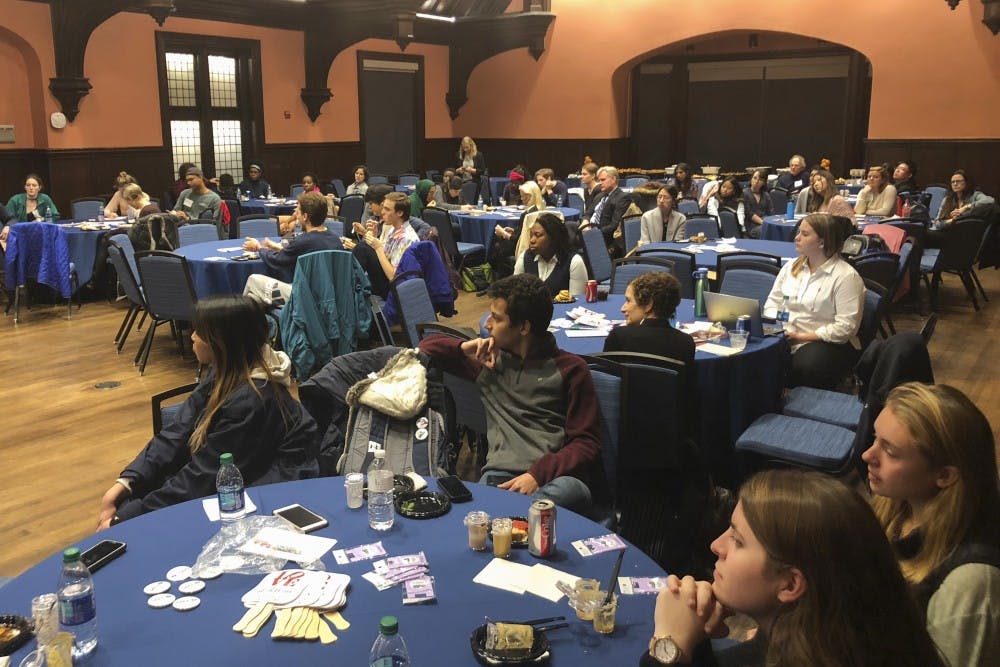
A panel of University of Pennsylvania students and administrators gathered in Houston Hall Monday evening to discuss how to foster wellness in an atmosphere of pain, hate, and fear.
Entitled “Hate and its Aftermath: How to Preserve One’s Wellness in Challenging Times," the conversation featured Penn Hillel Rabbi Joshua Bolton, University Chaplain Reverend Charles Howard, LGBT Center Director Erin Cross, Penn Wellness co-chair and Engineering junior Yasmina Al Ghadban, Undergraduate Assembly President and College senior Michael Krone, and Graduate and Professional Student Assembly President and Sociology Ph.D. candidate Haley Pilgrim.
Around 50 students, most of them members of student wellness groups, attended the event.
The conversation revolved around the ways in which the panelists were coping with a series of recent tragedies occurring across the United States. On Oct. 24, two African American shoppers were killed in a supermarket in Kentucky, acts which were initially investigated as hate crimes. Just days later, a Pennsylvania man massacred 11 people in a synagogue in Pittsburgh. Even more recently in Tallahassee, FL. a man with a history of misogynistic social media posts and a record of sexual assault killed two women in a yoga studio.
“I was always aware of a systemic racism, sexism, and other hate, but it wasn’t the people around me all the time," Howard said. "Today, we see it in politicians and musicians, and there is something doubly brutal about that.”
Pilgrim added, “The hardest thing is to have sacred space disrupted.”
While discussing their shock at hearing about these events, the panelists agreed that a good way to cope is to surround oneself with supportive people.
Cross explained the importance in having discussions about difficult subjects on a continual basis.
"We need to be having these conversations not just when there is a massacre, but when preachers start off the school year yelling at almost everybody, unless you are a straight, white, cisgender male," Cross said.

This Campus Conversation occurred a week after Penn held a vigil and memorial to the victims of the synagogue shooting.
“I don’t want to go back to normal. I don’t want to pretend what happened in Pittsburgh was just another statistic of American violence," Bolton said. "I don’t want to be numb.”
This was the third Campus Conversation held at Penn. The first was held in the wake of multiple student deaths and the second was a student-led event kicking off a Mental Wellness Week in spring. The panel was followed by roundtable discussions moderated by Penn Franklins, Penn Benjamins, and other peer wellness groups.
President of Penn Reflect and Wharton junior Noah Sinclair attended the event as a student facilitator for discussion groups. He said he was really excited to hear the panelists' different perspectives.
“There are a lot of people who are affected by a lot of the things that are happening right now, but not a lot of people talk about it, or know how to talk about it," he added. "In my opinion, there is no right way to do that, but people really appreciated the space and time to just reflect on it.
Correction: A previous version of this story indicated Michael Uram was on the panel, when in fact Joshua Bolton was.The DP regrets the error.
The Daily Pennsylvanian is an independent, student-run newspaper. Please consider making a donation to support the coverage that shapes the University. Your generosity ensures a future of strong journalism at Penn.
Donate






